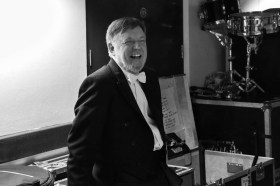London Philharmonic Orchestra’s new Chief Executive and Artistic Director, Timothy Walker – the latest in a wave of Australians to take key UK arts posts – is due to take up his appointment next month. His arrival in the capital, however, comes at a time when British orchestras and other large-scale arts organisations, including the Royal Opera House, are entering a new era after a period of financial instability.
While education and outreach – buzz words on the government’s ‘access’ agenda – now play an increasingly important role in music organisations’ remits, the push to reach broader audiences is also influencing debates on ticketing systems. A number of West End shows have, for instance, recently introduced cheaper ticket offers, and the Association of British Orchestras’ annual conference last month featured keynote speakers from easyJet and a premier league football club, to discuss their marketing and ticketing schemes.




